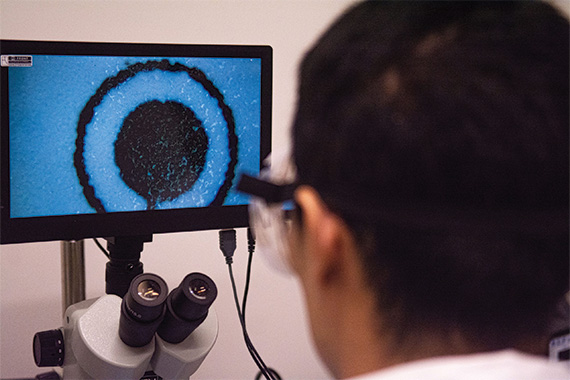In the past, biology was primarily concerned with the classification of living things and the study of their structure and function. However, with the advent of modern technology, biology has become increasingly focused on the molecular level. This has led to groundbreaking discoveries in the fields of medicine, genetics, and biochemistry, similar to how physical casinos have now switched online thanks to technology—we now get to enjoy casino slots at PlayAmo.
Modern biology has been responsible for some of the most important advances in human history. For example, the discovery of the structure of DNA has revolutionized the fields of medicine and genetics. This knowledge has been used to develop treatments for diseases, diagnose genetic disorders, and create custom-tailored medications. In addition, the study of biology has led to a greater understanding of the natural world and the evolution of life on Earth.
1. Charles Darwin
Charles Darwin was an English naturalist and biologist, best known for his work on the theory of evolution.
Darwin’s research and observations led him to conclude that species develop over time through a process of natural selection. This process, which results in the survival of the fittest, is driven by the struggle for existence, whereby organisms compete for limited resources.
Over the years, Darwin’s theory of evolution has been widely accepted by the scientific community and is now considered one of the cornerstones of biology.
2. Gregor Mendel
In 1866, Gregor Mendel discovered the laws of heredity, which are now known as Mendelian inheritance. These laws describe how traits are passed down from parents to their offspring.
Mendel conducted his experiments by breeding pea plants. He carefully tracked the traits of the plants as they were passed down from generation to generation. His work showed that there are laws that govern the inheritance of traits.
Mendel’s work was largely ignored during his lifetime. However, it was rediscovered in the early 1900s, and Mendel is now considered the father of modern genetics. His work laid the foundation for our understanding of how traits are inherited.
3. Linnaeus
Linnaeus is known for his work in classifying plants and animals. His work helped lay the foundation for the modern system of taxonomy. He also made significant contributions to the field of ecology.
He is most famous for his work in taxonomy, or the classification of living things. He developed a system for classifying organisms that is still in use today. Linnaeus also wrote extensively on the natural history of Sweden and other countries. In fact, his work helped to establish the field of ecology.
4. Aristotle
Aristotle is considered one of the most important figures in the history of biology. He was one of the first scientists to study living things systematically, and he made important contributions to our understanding of anatomy, physiology, reproduction, and developmental biology. He was also the first to develop a comprehensive system of biological classification.
Aristotle’s works in biology are considered to be some of the most important and groundbreaking works in the field. His work on anatomy and physiology was particularly influential, and his observations and conclusions about the nature of life and living organisms were groundbreaking. Aristotle’s work also helped to lay the foundation for the study of evolution and natural selection.
5. Pasteur
Pasteur was a French biologist and chemist who was one of the most important figures in the field of microbiology. He is best known for his work in vaccines and pasteurization, but he also made significant contributions to our understanding of fermentation, germ theory, and microbial pathology.
Pasteur’s work on fermentation led to the development of the process of pasteurization, which is used to prevent food spoilage and disease-causing microbes. He also developed vaccines for several deadly diseases, including rabies and anthrax. Pasteur’s discoveries changed the way we think about disease and ushered in a new era of medicine.
6. Watson and Crick
In 1953, James D. Watson and Francis H. C. Crick announced their discovery of the double helix structure of DNA, a find that is considered one of the most important in the history of biology. Not only did their discovery help to explain how genetic information is passed from one generation to the next, but it also allowed scientists to begin deciphering the genetic code.
The implications of their work are still being felt today, as researchers continue to unlock the mysteries of the human genome.
7. Lorenz
Lorenz was a highly accomplished biologist who made significant contributions to the study of animal behavior. His work in biology had a profound impact on the field and helped to shape our understanding of the natural world. His observations on the role of instinct in animal behavior were insightful and insightful. Lorenz’s work helped to establish the field of ethology, and his theories on evolution and behavior continue to influence biologists today.
He conducted groundbreaking research on imprinting in birds, and his work helped to establish the field of ethology. Lorenz was also a gifted writer and educator, and he played a key role in popularizing the study of animal behavior.
9. Leakey
Leakey has been hugely influential, particularly in the field of human evolution. He is best known for his work on the Olduvai Gorge in Tanzania, where he and his team discovered a wealth of fossils and artifacts that shed new light on the origins of humankind.
Leakey’s work has also been important in showing how climate change has affected human evolution and in understanding the relationship between humans and the environment.



